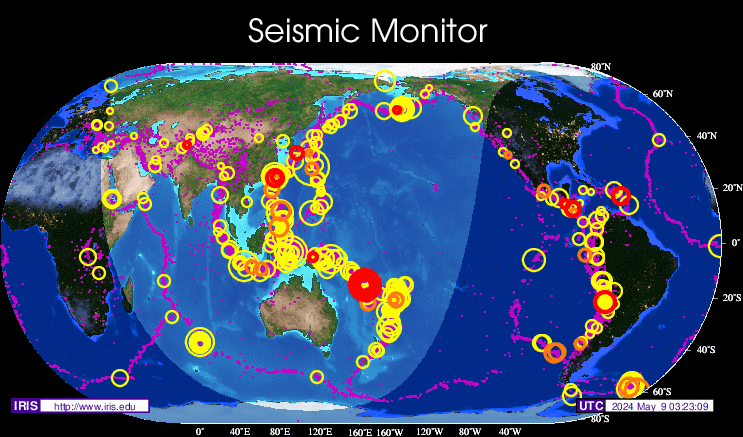Why this blog?
Until this moment I have been forced to listen while media and politicians alike have told me "what Canadians think". In all that time they never once asked.
This is just the voice of an ordinary Canadian yelling back at the radio -
"You don't speak for me."
email Kate
Goes to a private
mailserver in Europe.
I can't answer or use every tip, but all are appreciated!


Katewerk Art
Support SDA
Paypal:
Etransfers:
katewerk(at)sasktel.net
Not a registered charity.
I cannot issue tax receipts
Favourites/Resources
Instapundit
The Federalist
Powerline Blog
Babylon Bee
American Thinker
Legal Insurrection
Mark Steyn
American Greatness
Google Newspaper Archive
Pipeline Online
David Thompson
Podcasts
Steve Bannon's War Room
Scott Adams
Dark Horse
Michael Malice
Timcast
@Social
@Andy Ngo
@Cernovich
@Jack Posobeic
@IanMilesCheong
@AlinaChan
@YuriDeigin
@GlenGreenwald
@MattTaibbi
Support Our Advertisers

Sweetwater

Polar Bear Evolution

Email the Author

Pilgrim's Progress

How Not To Become A Millenial

Trump The Establishment
Wind Rain Temp

Seismic Map

What They Say About SDA
"Smalldeadanimals doesn't speak for the people of Saskatchewan" - Former Sask Premier Lorne Calvert
"I got so much traffic after your post my web host asked me to buy a larger traffic allowance." - Dr.Ross McKitrick
Holy hell, woman. When you send someone traffic, you send someone TRAFFIC.My hosting provider thought I was being DDoSed. - Sean McCormick
"The New York Times link to me yesterday [...] generated one-fifth of the traffic I normally get from a link from Small Dead Animals." - Kathy Shaidle
"You may be a nasty right winger, but you're not nasty all the time!" - Warren Kinsella
"Go back to collecting your welfare livelihood. - "Michael E. Zilkowsky
Here on SDA, we’ve often criticized the financial and political elites for being out of touch with the real world.
I keep finding nowadays that the academic “elites” are equally as bad. To them, the deplorables are the ones are the ones who have to go out, actually work for a living, and, sometimes, get themselves dirty. If one applied for a faculty position, doing anything “vocational” (as they see it) will be detrimental to one’s chances of getting the job. Actually working before earning one’s doctorate is considered a lack of dedication to “research” –that is to say, investigating whatever’s in vogue, provided someone else pays for it. Actually putting into practice what one learned as an undergraduate? Horrors!
They become loyal to whoever provides them with and maintains their seat on the gravy train.
When I was an undergrad in engineering more than 40 years ago, most of my professors had worked in industry or with those there. Now it seems that any connection with it, unless it’s to weasel funding out of a company, taints one’s reputation forever.
I find it ironic that the same alma mater that turned me down for a faculty position thinks I’m good enough to donate money to it.
Given that the article is “published” on Google Drive, anyone want to hazard a guess as to how long it will be before the paper is “unavailable”?
The problem with Universities, is they receive Billions in tax dollars, which have been forcibly taken from the average working Canadian. End the flow of tax dollars and let them support themselves.
It is a form of corporate welfare now.
you leave out that they are mostly tax exempt entities, so every year their endowments grow, without actually being spent on teaching students…
the ivys are a prime example of being primarily hedge funds, that happen to run a school as a side business, in the same way as pre-bankruptcy GM was a health care company that happened to make cars
“…they receive Billions in tax dollars, which have been forcibly taken from the average working Canadian.”
Don’t forget the local firehall, and the folks who pave the roads in your community. I don’t think it’s fair that I’m forced to help pay for those.
A mask wearing lockdown loving bot.
It is a form of corporate welfare now.
While I was still teaching at Armpit College, we had a young chap who taught at the uni for a while. He mentioned that salaries in his department were determined by how much external funding one brought in.
I’m sure one reason I never got a faculty position was that my research, which required only a computer and a lot of scrap paper, was self-funded. I was paying for it with the money I earned from my investments. That, in the academic system, is a no-no because I’ve heard that even though one may get external funding, that money is expected to go into the department’s operating budget.
In other words, one does the work to get the money, but someone else collects it. I think there’s a certain occupation that functions that way, one involving nocturnal red lights….
Academe is one setting in which an individual is punished for showing resourcefulness and personal enterprise.
I don’t know if Google is deliberately causing this, but I’ve been trying to load the PDF of the paper for 4 minutes now and my iPad just keeps thinking, and thinking, and thinking. You don’t have to ban something if you just make it impossible to load.
Why are arguments between academics so vicious?
Because so little is at stake.
Academic institutions can also be quite vindictive:
https://www.youtube.com/watch?v=oDQqV0ygB6c
Their ignorance would be best kept to themselves.
Given the complete academic tilt towards anything that could be related to “climate change”, the author could have replaced “political” with “theological”.
I watched Jonathan Haidt’s presentation video. It’s about an hour and a half in length but well worth the time.
Linked in the article: http://newpaltz.mediasite.suny.edu/Mediasite/Play/2f4aad7b42e14e429566b21abdfc1f6c1d
One of the points he raises near the end when discussing his solution to the crisis is a tacit recognition that some institutions of “higher learning” are simply too far gone to be salvaged.
Watcher mentioned firemen, who because of their ‘hero’ status, should apparently, be exempt from examination. In BC and certainly in my small city, the fire department is a long standing racket and an important player in city politics. Our town’s ‘executive class’ – Lieutenants, Chiefs, Deputy Chiefs, Captains, Inspectors etc., far outweighed the ‘regular numbers’. All earning six figure salaries, early retirement and great pensions.
With the advent of new building codes, materials, fire suppression systems etc; the fires are few and far between. So now they attend every medical and auto accident callout that’s phoned in – four to a truck, plus an ambulance and two attendants for every senior in distress. Starting salary for a new fireman? $80,000. When I asked why our small town fireman makes the same as a Vancouver fireman, where both the responsibilities and cost of living are MUCH higher, I was told “We get paid for what we do, not where we live.”
A fireman can live VERY well here. High salary, low cost of living, not much work. Most have secondary businesses or jobs here and construction is booming. Easy to low bid a project when you’re backstopped by a six figure guaranteed annual income and mostly three day weeks.
Speak to the IAFF officials here in town and you’ll see how tough and determined to serve their members (rather than we taxpayers) they can be.
dere wuz vipers – horking big nests of vipers, i tells you.